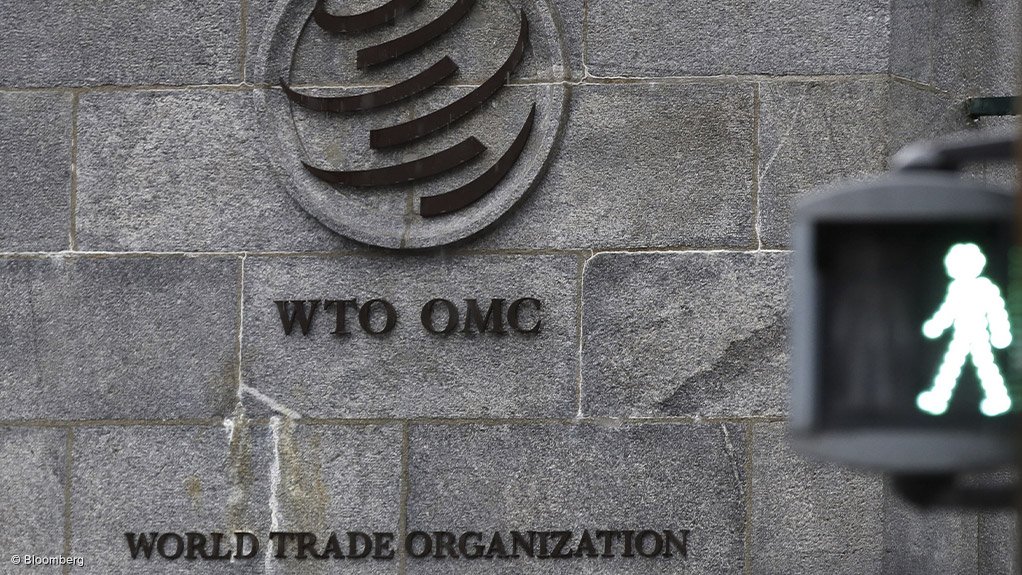The South African government and industry organisations have requested that two panels be established at a meeting of the Dispute Settlement Body (DSB) of the World Trade Organisation (WTO) to examine the stringent citrus import measures being imposed on South Africa by the European Union (EU).
The local stakeholders wish to address regulations around citrus black spot (CBS) and false codling moth (FCM) as they deem these to be unscientific and discriminatory.
The measures imposed by the EU since mid-2022 require enhanced cold treatment for fruit owing to concerns over FCM, a pest commonly found in sub-Saharan Africa, and CBS, a fungal disease which leaves dark spots on fruit.
South African citrus growers spend billions of rands every year to comply with phytosanitary measures to comply with international regulations, including those of the EU that the industry considers unnecessarily restrictive.
Citrus growers have assured the WTO that South Africa already has an effective world-class risk management system in place that ensures safe citrus exports and stressed that emerging citrus growers are especially hard-hit by the EU measures.
South African stakeholders maintain that the current EU citrus import measures are not based on scientific principles, are applied in a manner that is not in accordance with the Agreement on the Application of Sanitary and Phytosanitary Measures of which the EU is a signatory, and that the EU fails to apply the measures in a uniform, impartial and reasonable manner.
The measures are proving to be more trade restrictive than required to achieve protection and there are reasonably available alternatives which are technically and economically feasible.
With South Africa exporting about 36% of its citrus production to the EU, it is testament to the importance of this market for citrus growers and the industry’s profitability. The South African citrus industry supports 140 000 farm-level jobs and thousands more in the value chain.
South Africa is the world’s second-largest exporter of citrus globally, with an expected 170-million 15 kg cartons to be exported this year.
With stakeholders requesting the establishment of two panels at the dispute meeting, it will be the first time that South Africa progresses a dispute at WTO level beyond the panel state of the established DSB process.
The request follows South Africa requesting consultations with the EU on the CBS matter in April, but this process ended without any results. On FCM, South African stakeholder-initiated consultations in July 2022, but again with no satisfactory conclusion.
To meet the phytosanitary regulations, South Africa uses an integrated field-to-shipment pest-management systems approach consisting of three measures with numerous components within these measures and a prolonged period of crop protection, which required significant investment.
This "citrus systems approach" has proved highly effective, as shown by the results of papers published and reviewed in international scientific journals.
The EU, until mid-2022, had accepted South Africa’s systems approach.
While the EU did not accept South Africa’s request for the two panels through the DSB, the set DSB procedure allows for the requested adjudication panels to be established at its next meeting in July. A DSB panel report is typically expected after nine months.
Department of Agriculture, Land Reform and Rural Development director-general Mooketsa Ramasodi has committed government’s support to acting to safeguard livelihoods in the citrus industry.
Department of Trade, Industry and Competition acting director-general Malebo Mabitje-Thompson adds that the EU’s measures on CBS and FCM are not justified or proportionate, and that the WTO process being pursued is not confrontational or aggressive. Rather, it aims to reach a scientifically true and fair resolution using available WTO mechanisms.
EMAIL THIS ARTICLE SAVE THIS ARTICLE ARTICLE ENQUIRY
To subscribe email subscriptions@creamermedia.co.za or click here
To advertise email advertising@creamermedia.co.za or click here











